Leader of the largest Islamist party expresses his reluctance towards the politics of vengeance
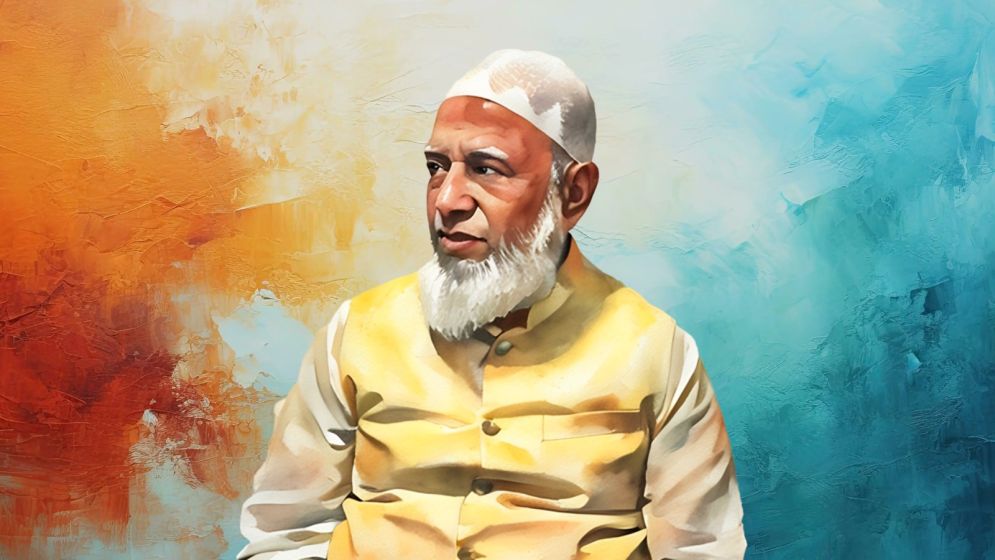
Just days before the fall of Sheikh Hasina's autocratic government, Jamaat-e-Islami, the largest Islamist political party, was banned with a simple stroke of the pen.
Although this decision had been anticipated for some time, as Hasina had spent her four consecutive terms targeting Jamaat as her political scapegoat, rallying widespread public support against the party, and almost creating a taboo around its existence due to its "questionable" stance during the 1971 war.
However, the tides have turned. After a humiliating fall from power, driven by a massive student-led, people-powered uprising, Hasina fled to neighboring India.
Meanwhile, Jamaat not only regained its political rights but also attracted significant public attention for its relatively "benevolent" activities and positions since August 5th.
At the forefront of Jamaat's renewed popularity and influence is its leader, Dr. Shafiqur Rahman. The white-bearded, saintly figure exudes a calming presence.
Speaking with a soft yet assured voice, Dr. Rahman rarely hesitates to express his genuine thoughts.
His candid speeches and unfiltered views have earned him praise and, more importantly, the kind of attention that is invaluable for any political leader.
In recent months, this attention has been growing.
Dr. Shafiqur Rahman recently visited London, where investigative journalist Zulkarnain Saer, also the Advisory Editor of Bangla Outlook, sat down with him for a discussion covering a range of topics, from politics and his views on Hasina to women’s empowerment and Shariah law.
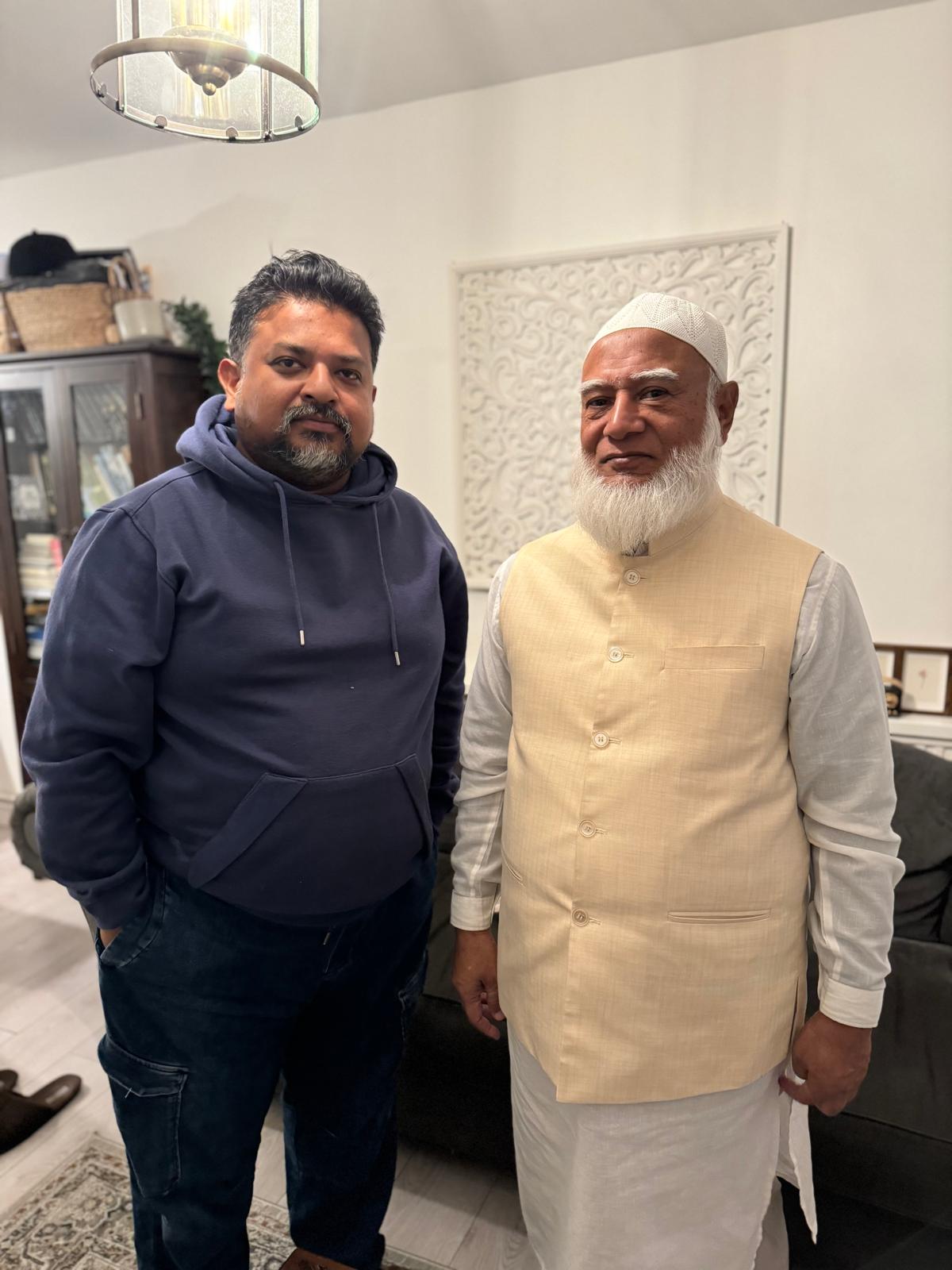
Here is an excerpt of that conversation for our readers.
Zulkarnain Saer: My first question is a straightforward one: Will the politics of Bangladesh remain unchanged before and after this student-led uprising? If not, what key differences can or should we expect to see?
Shafiqur Rahman: Bangladesh may remain in the same geographical location, but yes, due to this political shift, some significant changes have taken place. The most evident example of this is the interview between you and me today. Four months ago, I would never have imagined this happening, and I suspect you didn’t either.
One major change is the newfound freedom of the press. Now, the media can go anywhere, speak freely, and have their voices heard. As a party, we were severely oppressed for over 15 years. Our leaders were executed under the guise of justice—judicial killings. You’ve worked with the international community on this issue, which has expressed concern, protested, and offered numerous recommendations, but the government ignored them.
It wasn't just us—leaders and activists from almost every opposition party were killed. Everyone faced oppression, including religious scholars, and people from all walks of life. Even beggars were oppressed, forced to pay bribes just to ask for alms. Despite working all day, when they went to buy something with their meager earnings, they were confronted with inflated prices due to syndication. The helpless public couldn’t speak out. If we tried to, we were met with lawsuits, imprisonment, and torture. But still, we fought for our rights from a legitimate position.
This widespread oppression sparked deep resentment among the people. The major issue was that no one could voice their suffering. A culture of fear was instilled. But now, people can speak out. And while those who suppressed the voices before may now be unable to do so as openly, they are still speaking—just in different ways.
Particularly after Sheikh Hasina’s departure, she hasn't remained silent. She still frequently sends messages, giving instructions: "Do this, do that." It continues despite her absence. This can be seen as her exercise of freedom of expression, though it’s an unexpected situation and shouldn't be happening.
Another shift we’re seeing is that the aggressive police actions from before are no longer visible. Does this mean crime has disappeared? Will the police not arrest those who committed crimes during the revolution, those responsible for the genocide?
Yes, the police will arrest them—just as they should. Our role is to file cases in court. Then, the criminals will face the legal system. It’s the police's job to make the arrests, and it’s the judiciary's job to deliver justice. However, it appears that the police are not performing their duties as they should. Whatever the reason, this is the reality, and it marks another shift.
Finally, the state of the country’s economy has been devastating. The financial sector, the banks, everything has been destroyed and hollowed out.
The development narrative was presented to the nation, but the billions of pounds siphoned off were hidden from the public. Now, however, the nation is aware. In the past, people had no means to know the full extent, but they had an inkling. Today, they see that even a domestic worker can become the owner of 400 crore or 100 crore taka.
I’m not belittling domestic workers, but this raises a serious concern: if a domestic worker has amassed such wealth, what is the situation of the employer? People are starting to understand this now. Meanwhile, we saw our reserves plummet to dangerously low levels.
As a result, our export contracts faced major challenges. By the end of the previous government's term, people, particularly those living abroad, had lost hope. Their frustration led them to stop sending remittances.
But now, thanks to Allah, the reserves, which were drained during the previous government’s tenure, are stabilizing. Even during this period, we have managed to repay foreign loans without touching the reserves. This is a significant achievement in just three months.
Regarding law and order, Obaidul Quader and others had predicted that five lakh people would die. Although their statements were irresponsible and lacked any sense of accountability, the people of this country acted with responsibility and conscience. In just two days, three people lost their lives. It was later revealed that the death of a student from Dhaka University involved six individuals, some of whom were affiliated with the Awami League’s student wing.
Even after such a major defeat, their tendency for violence has not ended. They lured people in, fed them, and then brutally beat them to death while laughing. This was their behavior all year long—killing people, making them disappear, taking them to the Aynaghar (mirror room), and showing no concern for whether they were alive or dead.
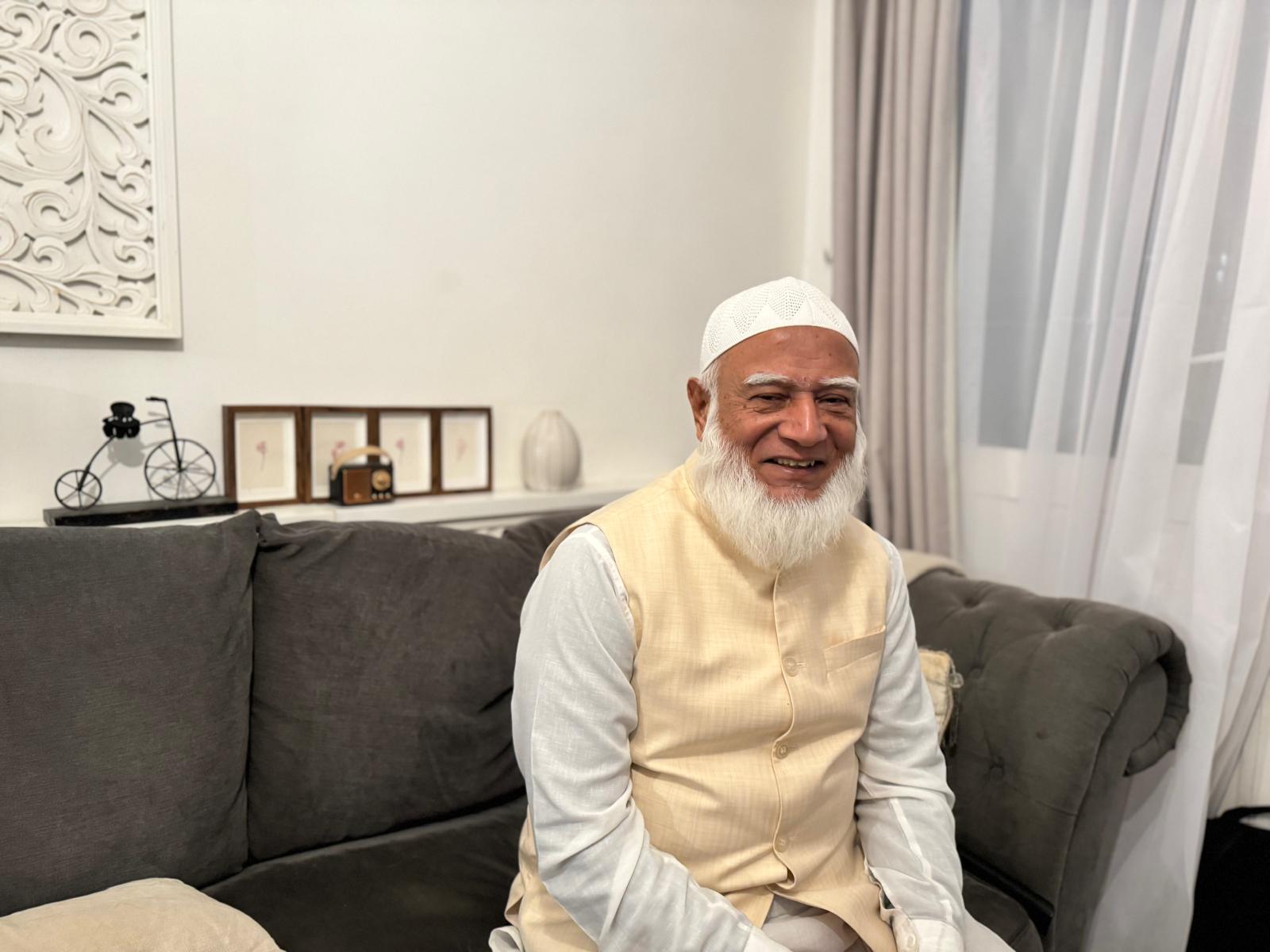
The uncertainty that people once lived with still hasn’t been completely resolved. But now, that culture of fear has ended. We no longer hear of people being taken to the Aynaghar (mirror room), or of families not hearing from their loved ones for months on end. We no longer see this.
Previously, even with strict press censorship, small pieces of news would still manage to leak. But now, with courage, what you have done has been exposed. Alhamdulillah. These are significant changes you can point to.
Another change is that the people of the country, when they speak, no longer say, "We won’t let anyone act against the country’s interests." Furthermore, Alhamdulillah, no one is saying, "I am afraid." Yes, one group of people committed countless wrongdoings over 15 and a half years, and they will face the consequences of their actions.
So far, only a few of them have been arrested. Will the rest be arrested?
I want to make one thing clear: we have declared that we will not engage in a politics of vengeance. This means we will not take the law into our own hands. However, those who have been murdered, disappeared, disabled, or harmed in any way should absolutely file cases.
There will be no compromise on this. Whether they are from our party or ordinary citizens, anyone who seeks our support will receive it. Our goal is to eliminate impunity and injustice. We also demand that those who have wronged us—who have executed mob justice or misused kangaroo courts—be appropriately punished for their crimes. Nothing more.
ZS:You mentioned that many of your party leaders and activists have been disappeared, murdered, and subjected to wrongful judgments in kangaroo courts. Will Bangladesh Jamaat-e-Islami pursue any legal action on behalf of the party regarding these issues?
SR: Regarding the party, we will certainly take action on these matters. For example, we were banned, and we took appropriate steps. Now, the ban has been lifted. Our registration was canceled, but we continue to operate as a party. This is an internal party issue.
As for murder and abduction, under the laws of any country, the victim's family has the right to seek justice. We are not stopping anyone, nor are we inciting anyone, but we stand with those who choose to come forward on their own.
ZS: There is a growing belief that the Bangladesh Awami League may be given a chance in the upcoming elections. Dr. Yunus, the head of the current interim government, has stated to The Hindu that political forces like the BNP may also have a say in this. What is Jamaat's position on this?
SR: Look, Jamaat’s stance is not the central issue here. They didn’t just kill Jamaat members—they have targeted the entire nation. It wasn’t about numbers or discrimination. After the coup on the 24th, during the revolution—however you want to call it—ordinary people were killed.
There was no party or ideological divide. People from all walks of life, including Muslims and Hindus, were killed by the police and thugs—though we won’t call them thugs, but rather police and party goons. This wasn’t a religious or party issue. It was about the people as a whole. The cries of the people haven’t ceased. Those who lost loved ones, those who are disabled, still suffer in hospital beds, and those paralyzed cannot even move.
The trauma persists among the people of Bangladesh. Now, it is up to the people of Bangladesh to decide how they wish to see the Awami League taking part in the election. That’s the bottom line.
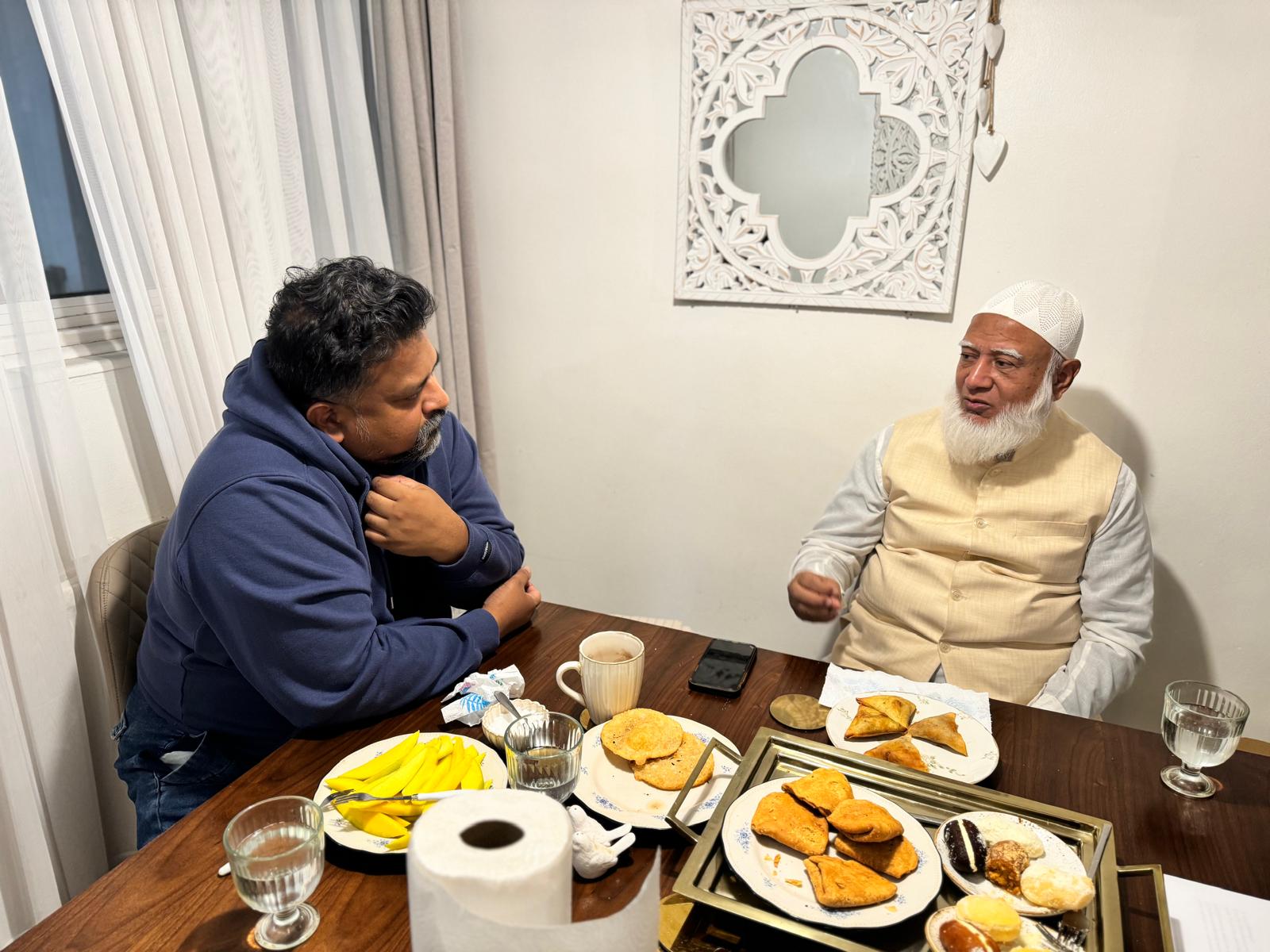
Number two, why would the Awami League even want to participate in elections? Do they truly desire elections? In the 2014 elections, 154 candidates were elected unopposed, with no challengers.
This indicates they instilled fear and confusion among the people, preventing them from coming out to vote. More than half of the seats were won without any competition. After that, what value does such a parliament hold? In the 2018 elections, the media reported that at many polling centers, not a single person showed up to vote. There wasn’t even a single vote cast. The scene was so empty that even dogs slept peacefully, without any people around.
Everything was under their control, and the administration acted according to their orders. They couldn’t even wait until December 30th; by the night of December 29th, they had already completed the elections. Do they truly want elections? Do they even believe in democracy?
Then, in 2024, they completely destroyed any chance of a fair election, leaving no room for any party to participate. That’s why the previous elections were referred to as "midnight elections," and the later ones as "dummy elections."
In these dummy elections, both the MPs and the cabinet were nothing more than placeholders. They ran everything with puppets. How can you even consider bringing such people into an election? Isn’t this an act of oppression against them? They don’t even want elections.
ZS: Next question: Do you have any plans to form alliances with other Islamic parties? And if so, do you think their stance and political ideology might conflict with yours?
SR: There is no ideological conflict with other Islamic parties. The real question is whether we will form an alliance. In our country, elections occur in three ways: some parties contest individually, others form coalitions based on understanding, and some create alliances.
We have experience with all three approaches. What we want now is a fair election with a level playing field for everyone, where no one is under fear, pressure, or threat, and everyone can participate freely.
Elections often lead to polarization, so we are focused on collaborating with those who have a clean image and are true patriots. We may engage in discussions with them about how to make the country prosperous, but it shouldn’t be just our perspective; they need to consider our views as well. We will see if they regard us as positively as we regard them.
There are many factors to consider. Additionally, the Election Commission has not been formed yet, so how can the election process begin? [by the time of taking the interview the Election Commission was not announced] The first step should be updating the voter list, especially for those who have reached voting age but aren’t registered yet. We need to ensure the voter list is inclusive for everyone currently living in the country.
At present, the system for voting from abroad is not fully operational. There are also issues surrounding citizens who were once Bangladeshi but have since become citizens of other countries—how do we address their voting rights?
They have also contributed to the nation-building effort and extended support to the country. We must find a solution for their participation as well. Once these issues are addressed, then we can hold a credible election. We have submitted 10 demands for reforms, while others have submitted 31 or 58 demands.
We have 41 demands, but we believe that 10 demands are sufficient for this government. The rest can be presented to the next elected government. It’s up to them whether to accept these demands or not. Our role is simply to present them.
ZS: Following Sheikh Hasina’s fall, Bangladesh’s relationship with the United States has been advancing quickly. Recently, elections were held in the U.S., and Donald Trump’s party emerged victorious. How do you perceive this development? Do you think it could pose any future challenges for Bangladesh?
SR: I believe that America, like other nations, is a friend of ours. The U.S. has a long tradition of democracy, and they have not been satisfied with the state of democracy in Bangladesh over the past 15 years.
They have raised concerns at various times, but the government has largely ignored them, often mocking America instead. However, that is a matter between the U.S. and the Awami League government. The U.S. monitors global affairs, and naturally, they would want peace and stability in every country, including Bangladesh, and for their allies to prosper.
Our expectation from America is the same as from any other government—that relations should be based on mutual respect, both at the government-to-government and people-to-people levels.
We also hope that Donald Trump, now re-elected as President, will continue to support democratic governance worldwide. We have extended our congratulations to him and trust that he will promote democracy on a global scale.
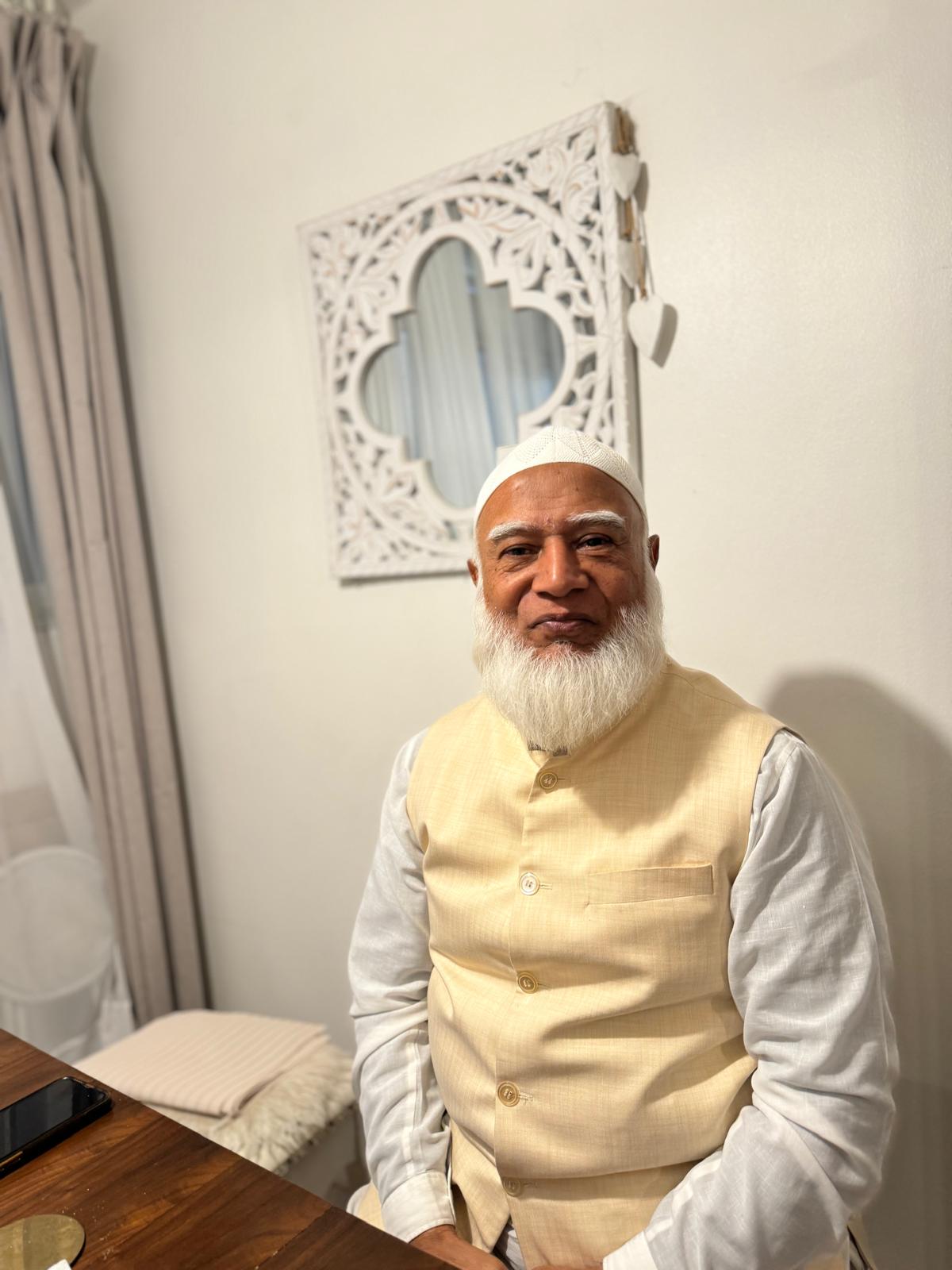
The people of Bangladesh will determine their own future, as is the right of any sovereign nation. No foreign power should decide for us, and this is something no country would accept. That said, if any foreign country wishes to cooperate with us, it should be on the foundation of mutual respect. The world today is a global village, and we are one of its many homes.
ZS: China continues to maintain significant investments in Bangladesh, and during the tenure of the ousted Awami League government, their ties appeared to be notably close. In the current political scenario, what kind of relationship can Bangladesh anticipate with China moving forward?
SR: China's role in Bangladesh is primarily commercial and not tied to any specific political party. Their contributions to our development, such as their technological partnership in major projects like the Padma Bridge, highlight their significant involvement in our infrastructure and economy.
Additionally, they have numerous other important projects in the country, particularly those tied to security and financial agreements. This is a typical dynamic for any country investing abroad.
We believe China's relationship with Bangladesh transcends individual political parties. Previously, their interactions were with the Awami League government as it was in power. While some may have perceived this as a party-specific relationship, the reality is that China aligns with the government in place.
Following the recent political shift, China has extended its cooperation to the current administration. For instance, they were the first to send a medical team to assist after the recent events, providing treatment to the injured for several days. This indicates that their relationship with Bangladesh remains stable and consistent, irrespective of political changes.
ZS: Given India's historically cautious stance towards Jamaat-e-Islami and the shift in Bangladesh-India relations since the change in government, how do you envision the future of this relationship? What principles should guide Bangladesh in fostering a productive and balanced relationship with India
SR: The Indian Foreign Minister has expressed a commitment to maintaining normal relations with Bangladesh, and we respect that statement. You mentioned India's reservations, particularly regarding Islamic parties like Jamaat-e-Islami, but the reasons behind these reservations remain unclear to us.
India is our neighbor, and just as we expect cooperation from them, they naturally expect the same from us. We have always emphasized that while people can change their circumstances, neighbors remain constant. A stable and cooperative relationship with our neighbor ensures mutual comfort and security. Therefore, our relationship with India should be built on mutual respect, shared responsibility, and equality.
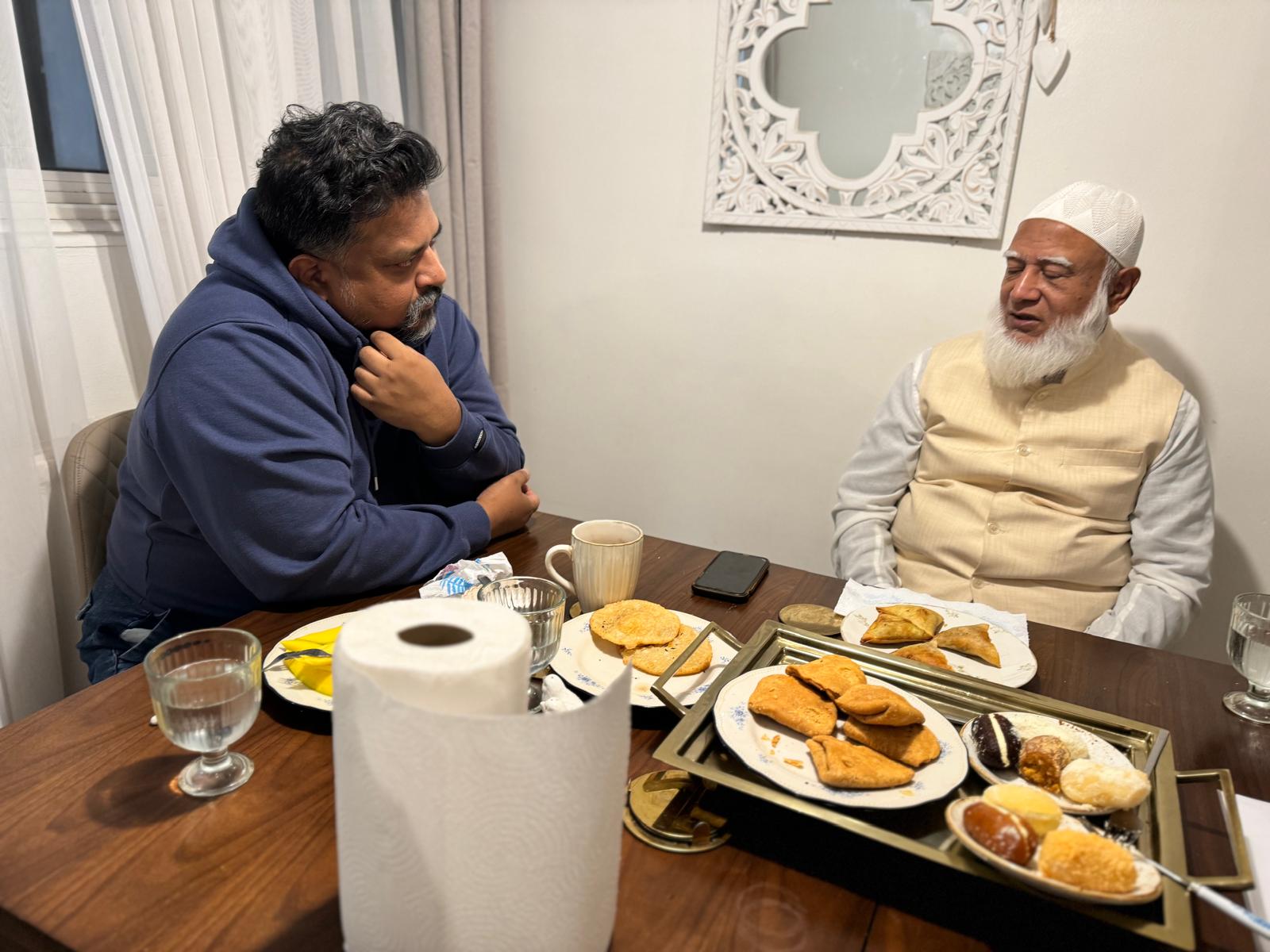
We do not have any issues with India and are open to hearing about any concerns they might have. At the same time, we do not interfere in India’s internal matters or comment on their domestic issues. How they manage their internal affairs is their decision, and we believe such matters should not be discussed from this side.
ZS: I have a curious question that is often raised in various media outlets and across social networks. Many people frequently ask why the Amir of Jamaat-e-Islami refrains from calling Sheikh Hasina a fascist. Do you not view Sheikh Hasina as a fascist?
SR: I firmly believe she is, and I’ve stated as much. If the situation calls for it, I will say it again, even more strongly. Just yesterday at a program, I mentioned that the truth doesn’t need to be repeated endlessly. Once a truth is established, it stands on its own without requiring constant affirmation. On the other hand, lies need to be repeated a hundred times to gain even a semblance of credibility. This is a clear truth. People have witnessed their fascism firsthand.
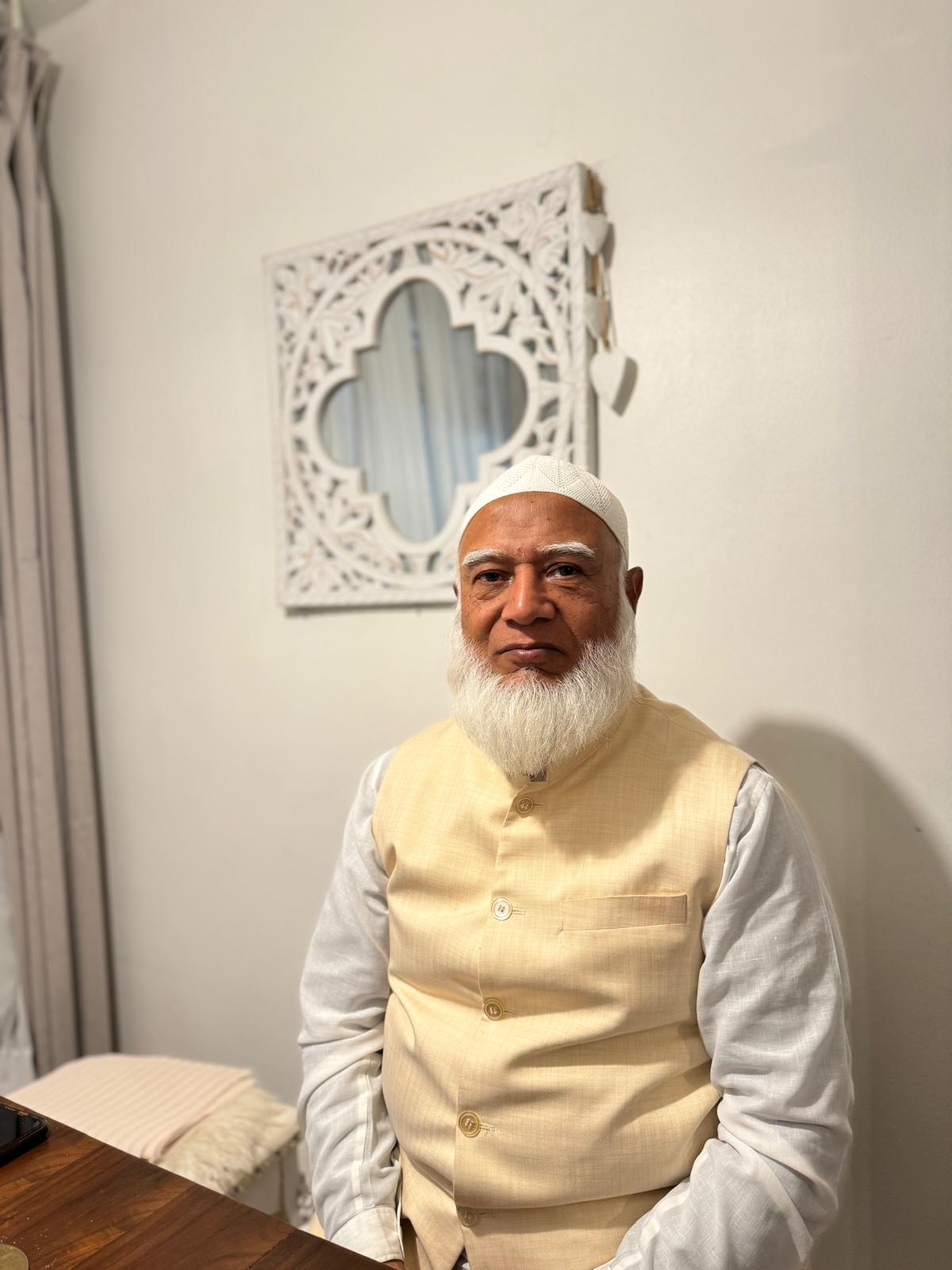
Their organization, the Chhatra League, has been labeled a terrorist group. A terrorist organization inherently operates with fascist principles. In fact, they have admitted to it themselves. Didn’t they effectively proclaim their fascist nature when they suppressed movements, boasting that the Chhatra League was enough to control dissent?
They openly assigned such responsibilities to Chhatra League, which then stormed Dhaka University, attacking students, both male and female, with reckless brutality. Their actions demonstrated a complete lack of awareness or restraint.
What else could such a party be called, if not fascist? There’s no need to repeatedly emphasize this because the people of this country have witnessed it firsthand. However, the public believes it is important to ensure that this reality isn’t forgotten. They feel reminders are necessary to keep the awareness of their fascist behavior alive. I remain steadfast in my stance and have no disagreement on this issue.
ZS: Jamaat-e-Islami’s role in Bangladesh’s Liberation War has been portrayed in various ways over the years. A new generation has now emerged in Bangladesh, and they may have questions or seek clarity on this matter. How do you plan to convey Jamaat’s position to this new generation? Additionally, was Jamaat-e-Islami involved in any acts of genocide during the Liberation War? Or did the party support such actions? What is your perspective on this?
SR: My view on this aligns with that of Sheikh Mujibur Rahman. His stance was similar to Jamaat-e-Islami’s. He believed that until his arrest, he did not have the right to declare Bangladesh’s independence because, as the leader of the party that had won the election, he was supposed to govern all of Pakistan.
He fought for the power that was rightfully his. Jamaat-e-Islami was the first to demand that power be transferred to the elected party. After Sheikh Mujib’s arrest, he was unable to declare independence directly. There is much discussion around these events, but I won’t delve into those details here.
When the army crackdown occurred on March 25th, Sheikh Mujib was arrested, and we were left under military rule, with no way to go to India. Some may wonder why it was impossible to go to India. We have to remember that even Maulana Vashani couldn’t stay more than four days in Kolkata.
He had to flee for his life and return to East Pakistan simply because of his title. He wasn’t a member of Jamaat-e-Islami or any Islamic party, but as the leader of the left-wing National Awami Party (NAP), he couldn’t be accepted in India due to his title. If India didn’t accept him, would they accept Jamaat-e-Islami or any Islamic party?
No Islamic party was accepted there. During that time, East Pakistan was still part of Pakistan, and many expressed support for United Pakistan. Expressing an opinion in favor of Pakistan was not a crime, but that doesn’t mean they committed any atrocities.
Did Jamaat-e-Islami engage in violence, kill anyone, loot property, set fires, or dishonor women? We believe they did not. This belief is reinforced by the fact that, during Sheikh Mujib’s tenure, 24,000 cases were filed, and only 195 individuals were selected as war criminals. None of Jamaat’s leaders were named in these cases or in the list of war criminals. For 42 years, no accusations have been leveled against them.
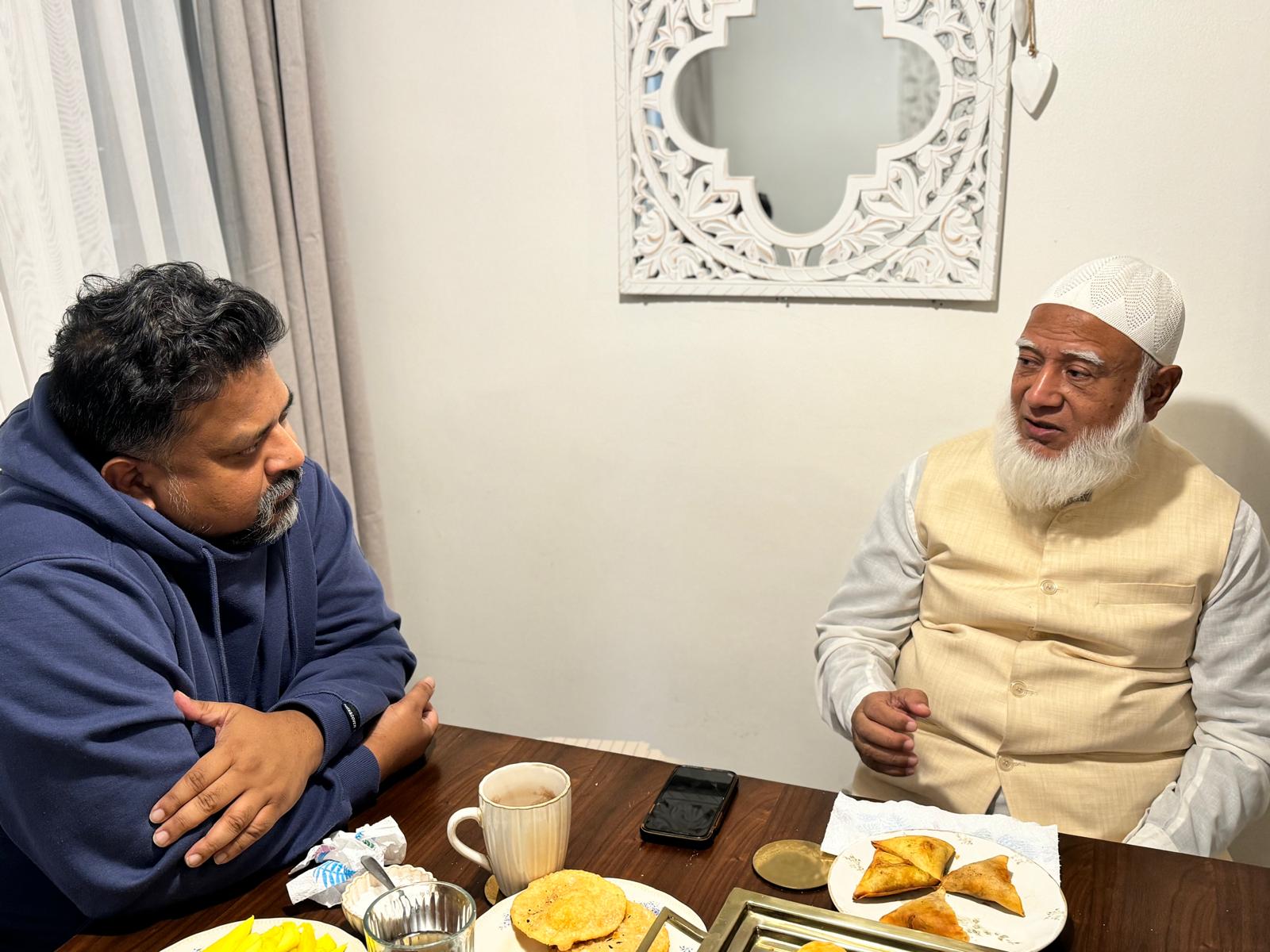
From 2001 to 2006, Jamaat-e-Islami, as part of the government, effectively managed two ministries with honesty and competence. When a change occurred, they were taken aback. It was then that Jamaat-e-Islami became a target.
This was the beginning of the process. In their 2008 election manifesto, they stated that if they came to power, they would prosecute war criminals. Fine, if they want to pursue that, there’s no issue.
But who exactly the war criminals are was already determined by Sheikh Mujibur Rahman. If they can, let them prosecute them. If anyone from Pakistan is still alive, let them be prosecuted. And if they wish to prosecute someone who is already deceased, they are welcome to do so.
However, if they want to label someone from Bangladesh as a war criminal now, many questions will arise. Why weren't these individuals listed earlier? Why were there no cases filed against them at the time? Was Jamaat-e-Islami so dominant then that no one dared file a case because they feared Jamaat’s influence?
At that time, Jamaat was not in power, and its members had their citizenship revoked. Yet, even against those whose citizenship was revoked, no cases were filed. Among the 46 people whose citizenship was revoked, only two were from Jamaat, and even they didn’t face any legal action.
So, where did these grounds for prosecution emerge 42 years later? How did this all come about? Still, I would say, as an elder, that if someone’s crime is proven beyond a reasonable doubt, they should be held accountable.
If Jamaat made any mistakes at that time, and this is definitively proven with clear evidence, I will apologize for it. I have no problem doing that. But the truth must be irrefutably proven.
Since 1992, people have been observing us. We didn’t come from any other country. Personally, I am from a family of freedom fighters, and there are thousands of freedom fighters within this organization.
Those who fought directly in the war are here too—why did they come? They must have seen something worthwhile in Jamaat, which is why they joined. This organization has faced constant criticism, pressure, threats, and even loss of lives—people have suffered greatly. Despite all this, why are they still here? Clearly, despite these challenges, they have found something valuable here.
Now, setting all of that aside, can anyone provide a single example where, in independent Bangladesh, we have ever spoken against the country's independence or disrespected it, on behalf of our leadership?
The statements made will be recorded; what was said can be documented. But what matters now is not the noise from supporters. What matters is whether the leaders of our party have ever made such statements, good or bad, and whether they have been documented.
Can anyone show evidence of this? We have always embraced Bangladesh with respect and honor. And if, by Allah’s grace, we ever have the chance to lay down our lives for the independence of this country, we would do so to protect its freedom. We cherish that. If anyone feels they have been harmed by us, we will find a way to address it.
ZS: If Jamaat-e-Islami forms a government in Bangladesh, it will certainly be through a democratic process. So, what would the governance look like? Many individuals and groups express concerns that Sharia law will be imposed, women will be restricted from working, they will be forced to wear the burqa, and that there will be conflicts with secularism. What is your perspective on these concerns?
SR: The current state of secularism in Bangladesh allows people of all religions to practice their faiths. However, there are restrictions—for instance, a muezzin cannot openly explain his religion in the mosque. There have been disturbances in mosques, with tafsir gatherings being disrupted and police intervening, resulting in the looting of property.
These pressures are being felt by the Muslim community in the country. Just today, this issue was raised in the British Parliament. If secularism means that everyone is free to practice their beliefs without fear, then we fully support that. After the recent movement, we must ensure that no one can undermine this freedom or create any problems.
To help ensure this, we provided security for religious institutions of all faiths for 15 days, standing through rain and sun. When the government took over the responsibility, we asked if we should continue guarding, and they said it was no longer needed.
We also spoke with people of other faiths, and they assured us that, for now, our help was not needed but expressed their gratitude and respect. If, by the grace of Allah, the country comes into our hands, we will ensure that people of all religions can practice their faiths freely and respectfully.
Regarding gender issues, women are our mothers, sisters, and daughters, and we will strengthen their respect and dignity. They work in many fields, and while they can work in many places with respect, sometimes their safety and dignity are compromised. We will ensure their respect and safety.
You may ask if there is evidence of this. In our institutions, boys and girls from all religions work and study together. You are welcome to visit any of our institutions. I have my own institution in Sylhet, like Oman Medical College.
A reporter from Kalbela once asked if he could visit, and I told him to speak with each person individually. He later wrote an exclusive report, interviewing people of all religions—officials, employees, and students. I, as the head of this organization, never forced anyone to wear a scarf.
There are both scarfed and non-scarfed individuals. If a Hindu girl or a Muslim girl doesn’t wear a scarf, I would never force them to do so. I can encourage them, but it’s not my right to compel anyone. Islam is not a religion of coercion. There is no compulsion in religion. We aim to motivate people to do good deeds, and through that motivation, change will come from within. If the heart changes, so will the actions
This is our belief—change must come through personal conviction, not force. When Rasul Karim (PBUH) went to war, he brought our mothers and sisters along. During the Battle of Uhud, when things were most difficult, the person who protected him with a shield was not a man, but a woman. I am proud of them. If they were included in such a difficult task, in what other area would they be excluded? In reality, a fear is being spread to create a distorted perception about us.
Let’s now discuss Sharia law. When people think of Sharia, they often associate it with harsh punishments like beheading or amputations, but that’s not the true essence of Sharia. Sharia is divine law, given by the Creator, who is the origin of all creation. It is the best law for His creation. It was through this law that Muslims governed India for 700 years, despite being only 7% of the population, ruling over 93% of people from different religious backgrounds.
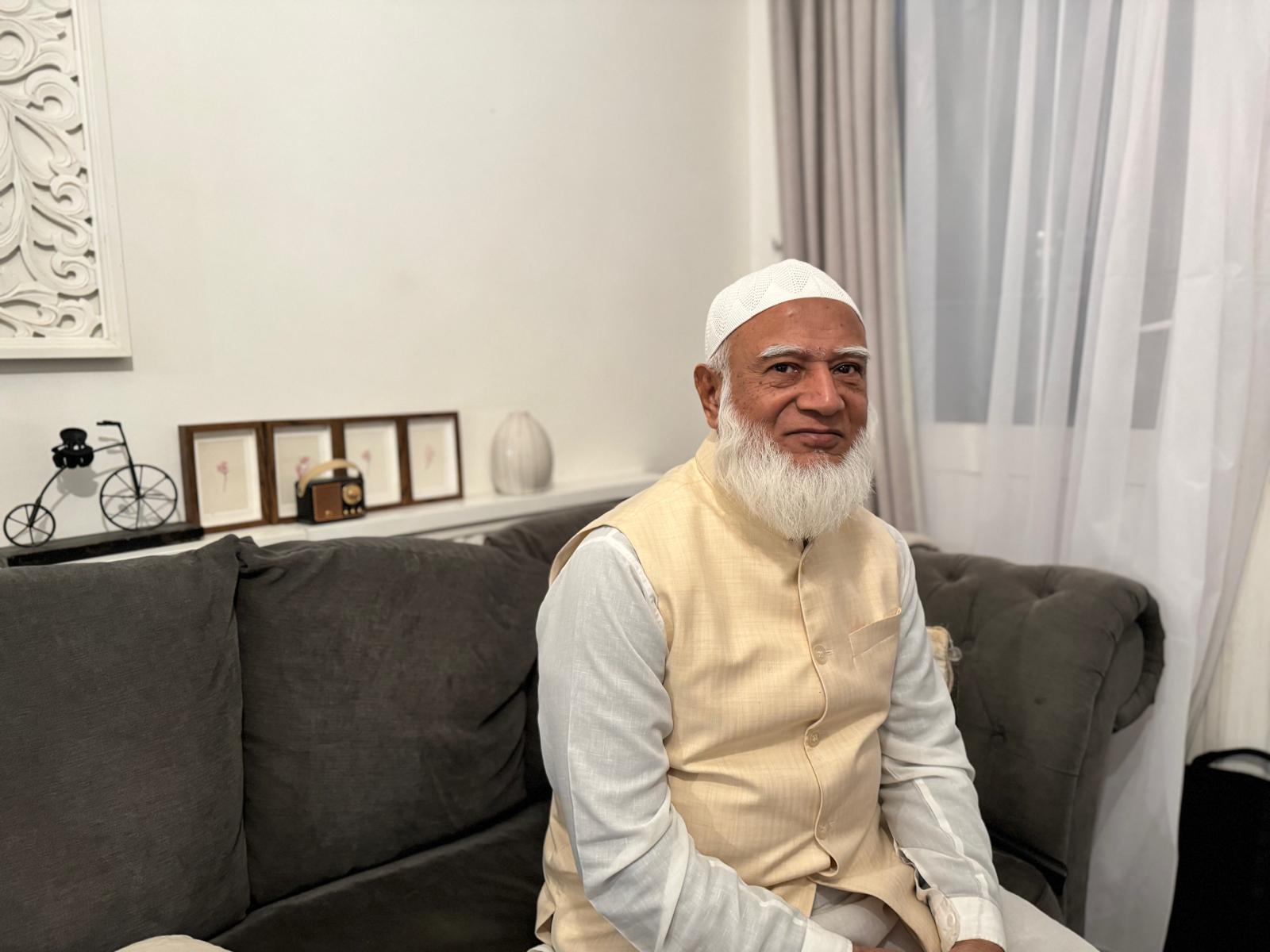
Was this achieved solely by force? No, it was their integrity and virtue that allowed them to govern successfully. The establishment of Islam wasn’t just about enforcing certain laws; it was about implementing key principles of Islam.
Had the entire system been implemented, the results would have been even more remarkable. In fact, the current conventional legal system aligns with Sharia on most points, and where there are differences, there will be mechanisms in place to address and resolve them.
ZS: Thank you very much for talking with us.
—-

